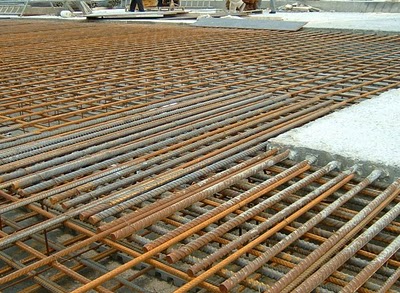RCC (Reinforced Cement Concrete)
Advantages of RCC
Nowadays, RCC is used in most of the structures. The advantages of RCC (Reinforced Cement Concrete) are as following.
- Reinforced Cement Concrete has good compressive stress (because of concrete).
- RCC also has high tensile stress (because of steel).
- It has good resistance to damage by fire and weathering (because of concrete).
- RCC protects steel bars from buckling and twisting at the high temperature.
- RCC prevents steel from rusting.
- Reinforced Concrete is durable.
- The monolithic character of reinforced concrete gives it more rigidity.
- Maintenance cost of RCC is practically nil.
It is possible to produce steel whose yield strength is 3 to 4 time more that of ordinary reinforced steel and to produce concrete 4 to 5 time more stronger in compression than the ordinary concrete. This may high strength material offer many advantages including smaller member cross-sections, reduce dead load and longer spans. But the high stress result in high strain and consequently large deflection of such member will occur under ordinary loading conditions. Also high strength reinforcing steel would include large crack in the concrete which reduce the durability of the structure. The commonly used yield strength of high strength reinforcing steel is 60 ksi.

